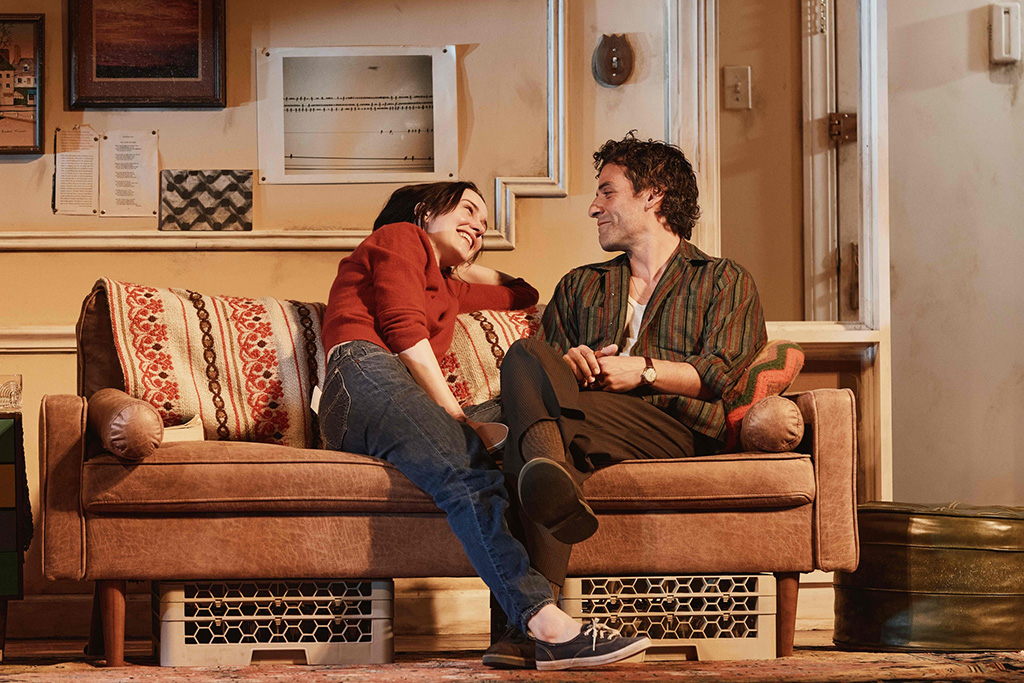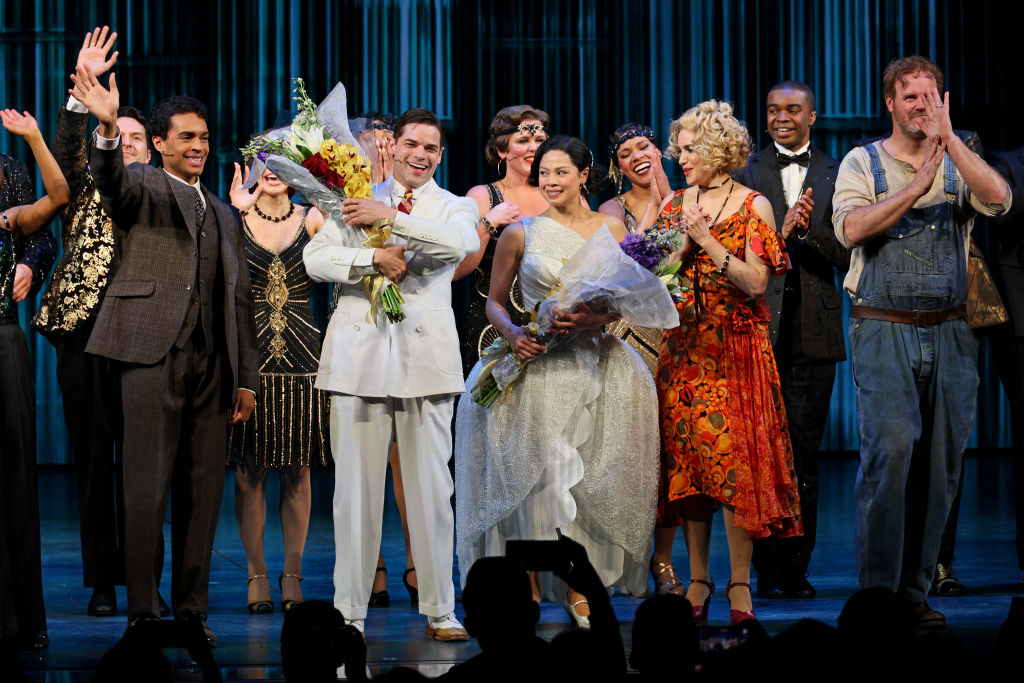The Sign in Sidney Brunstein’s Window — set in the blustering world of 1960s New York bohemia — deals with so many hot-button issues it is hard to keep up. Patriarchy, anti-Semitism, gay rights, slavery, sex work, suicide, drugs, adultery, racism. It’s all there.
But as I watched Anne Kauffman’s superb, and at times transcendent, Broadway revival, it dawned on me that one theme unites them all: corruption.
The play’s moment of truth hangs on the revelation that a local Manhattan politician who preaches progress is actually a crook. But on a smaller, equally devastating level, it is also about the corruption of marriage, of bodies, of values, of morals and of hope.
At one point, Sidney attempts to bribe his neighbor, a playwright, into writing a part for his wife, a failed actress. “That’s the magic of tiny corruptions, isn’t it Sidney?” the playwright, David Ragin, sneers. “Their insignificance makes them appealing.”
The Sign, Lorraine Hansberry’s final play before her death from cancer aged just thirty-four, first premiered on Broadway in 1964. This production, which arrives following a near sell-out run at the Brooklyn Academy of Music, marks just its third Broadway outing.
And what an outing. Earlier this month, The Sign was nominated for a much-deserved “Best Revival of a Play” Tony Award. During the performance I attended, a girl to my left cried uncontrollably as it ended. To say it is electric is an understatement.
The Sign opens in a haphazard Greenwich Village apartment, where Jewish nonconformist Sidney — played with an intoxicating, magnetic force by Oscar Isaac in his Broadway debut —plots his latest questionable business venture: the purchase of a neighborhood newspaper.
Sidney lives there with Iris (Rachel Brosnahan, star of The Marvelous Mrs. Maisel), his more sensible, focused wife. While he spends his days bombastically debating the various ills of the world with his liberal, arty friends, she wants more. “I am twenty-nine,” she pleads, “and I want to begin to know that when I die more than ten or a hundred people will know the difference. I want to make it, Sid.”
As various characters pop in and out of the apartment, the first half dedicates itself to the pair’s toxic relationship, marked by sizzling sexual chemistry and a million petty cruelties. The couple pushes and pulls at each other, while the men banter.
The back-and-forth between the various characters, including David, the playwright, who is gay, and black activist Alton Scales (Julian De Niro, son of Robert), is exhausting and combative, as they lock horns like warring stags. Hansberry’s witty, scathing script reveals that ego and intellectual point-scoring is as important to these progressives as action: at times, they feel like college students getting high on their own morals, not grown men.
It is the women, then, who offer some respite: in this case Iris and her two sisters, the matronly, bourgeois Mavisand Gloria, a call girl posing as an international model.
All three women are attempting to seek their own independence. Iris wants to break free from her marriage. Mavis (a superb Miriam Silverman) is an old-fashioned bigot, who also happens to be smarter than the mocking Bohemians give her credit for. It is she who calls them out for their smugness and dismissal of the ordinary middle-class people around them, who they never try to understand, much less reach out to.
Of the three, Gloria is the most wounded. Performed winningly by Gus Birney, she has the face of a model, the voice of a baby doll, and the limbs of a gazelle. But beneath her easy charm, Gloria is brimming with unfathomable hurt and disappointment in life.
Her arrival in the second act marks a change in pace for The Sign, as it slips into a prolonged drug and alcohol-infused sequence, saturated in pink and green washes of light. Kauffman’s edging into the surreal works: it provides relief from all the hyper-intellectual talk and pushes the play into a new realm that feels more sensual and urgent.
Critics have accused The Sign in Sidney Brunstein’s Window of lacking cohesion and coherence. For me, it is exactly this sprawling, unwieldy energy that makes it so exciting. If the first half of The Sign is a tightly-wound domestic drama, the second half becomes a full-blown Greek tragedy, foreshadowed by Mavis’s recollections of growing up with “Papa”, a Greek father with poetic pretensions who encouraged his daughters to act out the classics and who changed their surname to Parodus, the first song sung by the chorus in a Greek tragedy.
While confronting her own death, Hansburry wrote: “Comfort has come to be its own corruption.” The Sign is many things. To its great credit, it is never comfortable.





















